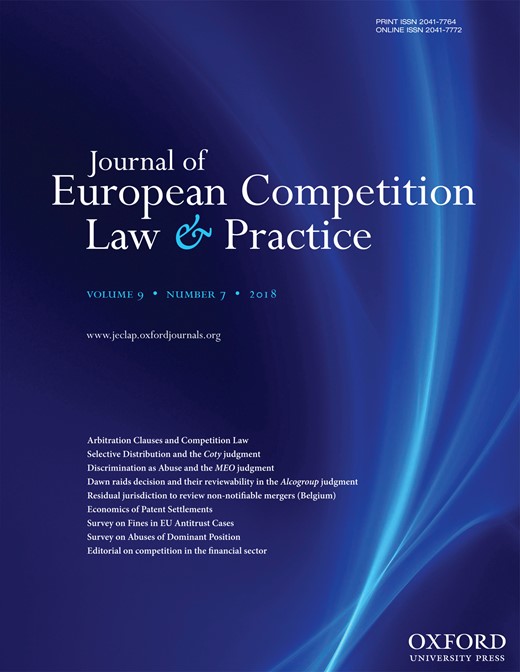-
Views
-
Cite
Cite
James Segan, Arbitration Clauses and Competition Law, Journal of European Competition Law & Practice, Volume 9, Issue 7, September 2018, Pages 423–430, https://doi.org/10.1093/jeclap/lpy039
Close - Share Icon Share
Extract
I. Introduction
There is a considerable body of literature on the topic of arbitrating competition law disputes.1 The focus of such literature has tended to be on three topics in particular, namely (i) whether competition law claims are arbitrable at all; (ii) whether arbitral tribunals are under a duty to rule upon competition law claims raised by the parties or to raise such issues ex officio, and (iii) whether and in what ways a court, asked to review an arbitral award, should apply competition law even if not raised before the arbitral tribunal. These three topics partly reflect the important and indeed fundamental nature of the issues discussed in, or arising from, the landmark decision of the Court of Justice in the Eco Swiss case.2
These three topics are now the subject of a reasonably settled consensus. As to the first, the arbitrability of claims arising from the two principal prohibitions in EU competition law is now well-established: as two learned authors recently observed, in a detailed analysis of the US and EU case law, ‘[t]oday, there is a wide consensus that Articles 101 and 102 are fully arbitrable’.3 As to the second topic, it has been clear for some time that there is no duty upon national courts—a fortiori arbitrators—proactively to root out infringements of the competition rules;4 but it is likewise reasonably clear that a refusal to rule upon a competition law issue raised by one of the parties—so long as within the scope of the arbitration agreement—would render any award liable to be set aside for reasons of public policy.5 As to the third topic, while a vigorous debate continues as to the intrusiveness or otherwise of the scrutiny to be applied by a national court, the Eco Swiss case conclusively decided that an arbitration award may in principle be challenged, upon an application to a national court within the EU to annul it, on ground of a lack of compliance with EU competition law, so long as the relevant domestic rules of procedure require the national court—as they usually do—to grant an application for annulment founded on failure to observe national rules of public policy.



